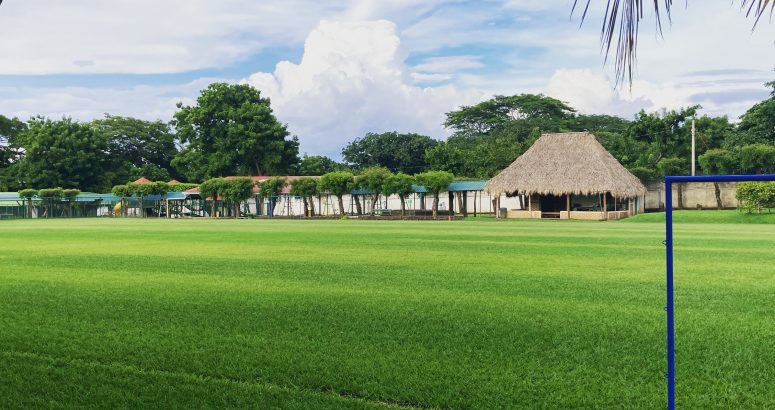Nicaraguan Context

Land of Lands and Volcanoes
Nicaragua is a small country located in the heart of Central America with a population of 5.7 million people. It is called the "land of lakes and volcanoes." The eleven volcanoes and several large lakes provide an abundance of natural beauty. The Nicaraguan people are warm and caring despite the fact that they have suffered much throughout the years.
Managua is the country´s capital, with a population of just over 1.5 million. Beautiful beaches along the Pacific coast are an hour´s drive from Managua. Northern Nicaragua is mountainous and contains the largest intact rain forest in Central America. The Atlantic coast, accessible only by air, is home to several ethnic and indigenous groups.
The climate is hot and tropical. There are only two seasons: rainy and dry. During the rainy season (May to November), it rains most afternoons for short periods. This is the prettiest and coolest part of the year. The temperature can range from 80-95 degrees. In the dry season, temperatures soar. March and April are the hottest months with temperatures over 100 degrees.
History
Statistically, Nicaragua is considered the poorest Spanish-speaking country in the world (second overall to Haiti in our hemisphere). Yet even the statistics do not reveal the depth of pain and suffering that the people of Nicaragua have experienced over the last several decades.
In 1972, an earthquake destroyed 90% of the downtown Managua area, killing hundreds of people and leaving thousands homeless. As the country attempted to recover, opposition arose to the harsh Somozan dictatorship. The people overthrew Somoza through a popular revolution in 1979. The Sandinista party, under Daniel Ortega, monopolized power and led the country toward a socialistic economic and political system. Several opposition groups went into exile and began a fierce civil war. The United States backed one group commonly called the contras and later imposed a complete economic embargo on Nicaragua. The Sandinistas held elections in 1990 and were defeated by a coalition party led by Violeta Chamorro. The 1996 election provided the first case in the history of the country where one democratically elected president took over from another; since then, Nicaragua has had peaceful transitions of power, but Nicaragua is still very politically divided.
In 1998, Nicaragua experienced Hurricane Mitch, which took many lives and destroyed thousands of homes and acres of land. Hurricane Felix hit in 2007 and caused more widespread damage. It will take time and a lot of effort, but all of this suffering has created a nation of people starving for the answers that only those who are "called according to His purposes" can give them. In the midst of the war, tragedy and poverty, God´s people continue to proclaim the Good News. Each year there are signs of hope, reconstruction and reconciliation. It is an exciting time to be in Nicaragua and there is openness to the Gospel message.



